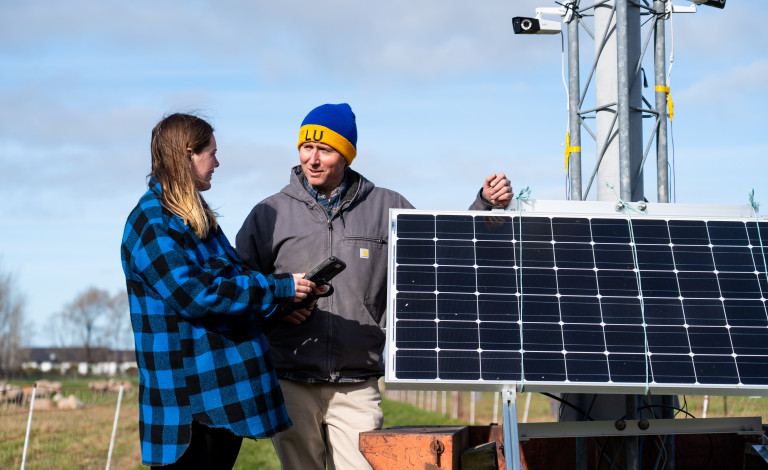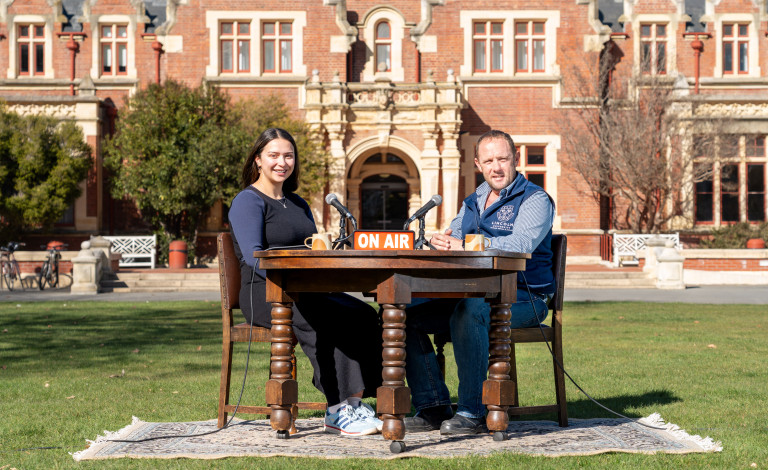Master of Artificial Intelligence for Land Use first of its kind for New Zealand
29 August 2025 | News
Making decisions and finding solutions for our land is important, and incredibly difficult. AI can help with that.
Artificial Intelligence has exploded in popularity thanks to generative AI programmes becoming available to the public. The implications for the workforce and society are huge, and it also has massive potential to help support our land.
Lincoln University’s new Master of Artificial Intelligence for Land Use is the first of its kind in New Zealand, one of very few worldwide. Like all things Lincoln, it’s grounded in practical and specialised teaching. Students will design and build their own AI models and have the chance to work on an industry project, tackling real issues and driving innovations in the sector. There’s also the option to complete a research dissertation, providing a pathway into PhD study.
Programme Coordinator Thilini Bhagya says AI has the ability to drastically improve how we manage and make decisions about our land, from urban planning and water stewardship, to planting natives and climate change resilience. That opens the door for new and innovative solutions.
"AI helps us analyse data, detect patterns, and generate new insights and predict outcomes, so we can make smarter, evidence-based decisions.
“These days we're collecting so much data that no one can process it manually. AI doesn't just sort through data; it learns from it, adapts to new contexts, and can predict outcomes that would otherwise be impossible to see.
“That helps us create smarter, evidence-based solutions.”
It’s especially important for land, which requires working with lots of unique data, such as soil maps and topography.
Students will learn how to train new AI models, modify existing ones, and ensure the tech is working efficiently. That includes cultural and ethical competency.
“There are a lot of issues around the use of data in AI.
“These models need data to train. Who owns that data? Who has the right to use it? Who has the right to use the model trained from it?
“How do we make sure that we’re not infringing copyrights or misusing the data we’ve got? We’ve got to know how to technically create these models, but also ethically.”
The programme has a kaupapa Māori-aligned curriculum including tikanga-informed ethics. There are pathways to enable Māori students to advance their community’s priorities and their own careers in a growing field.
The Māori food and fibre asset base alone has grown well over 200% in ten years from $6 billion in 2013 to over $19 billion in 2023. It’s a huge contributor to Aotearoa’s economy.
“The future and the planning of those operations and the land can be supported with AI.”
Graduates of this programme will be well-placed to become AI specialists across all land-based industries and ready to fill new roles as the technology develops.
Learn more about the Master of Artificial Intelligence for Land Use. Applications are expected to open later this year.
This programme is subject to approval by the Committee on University Academic Programmes.

